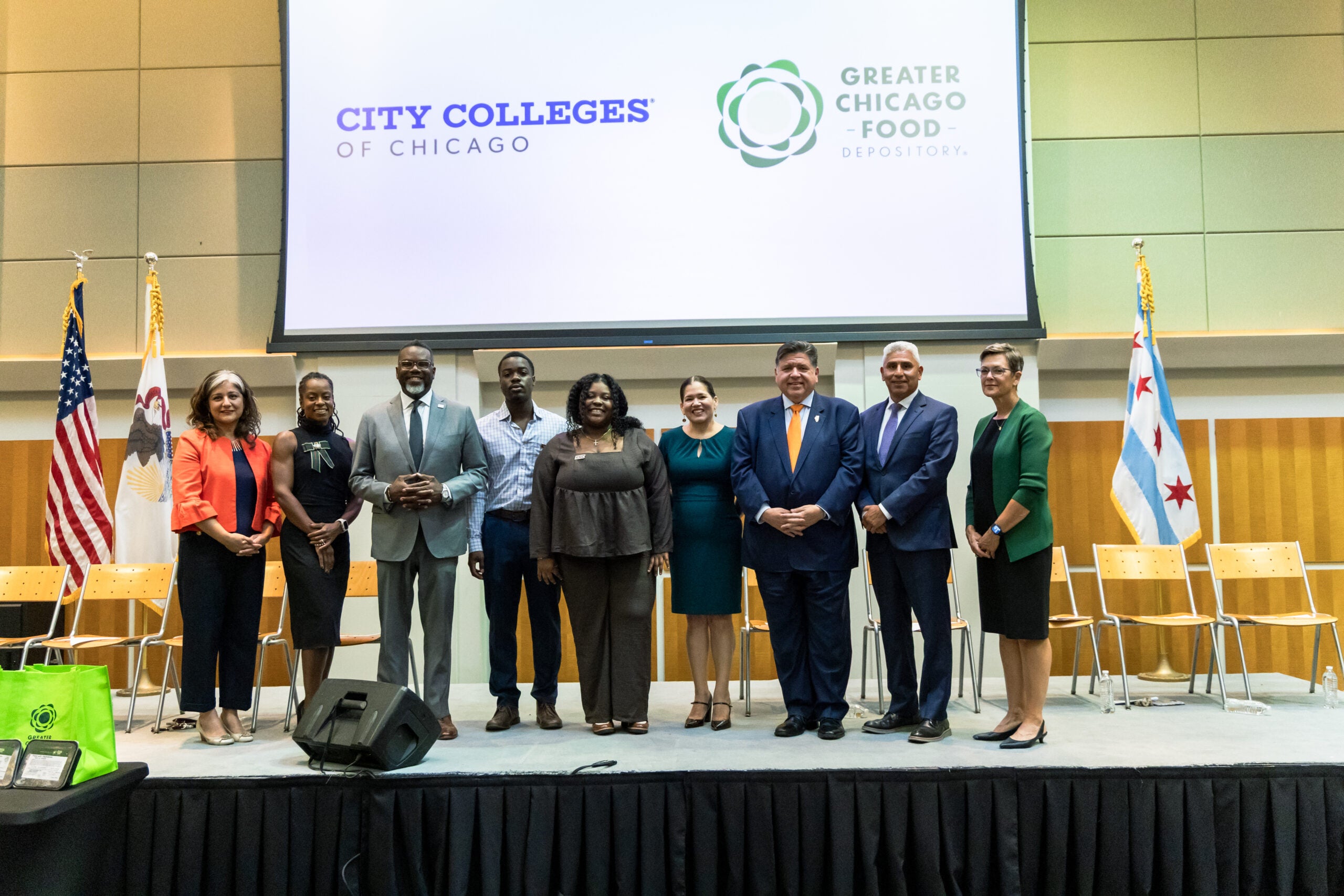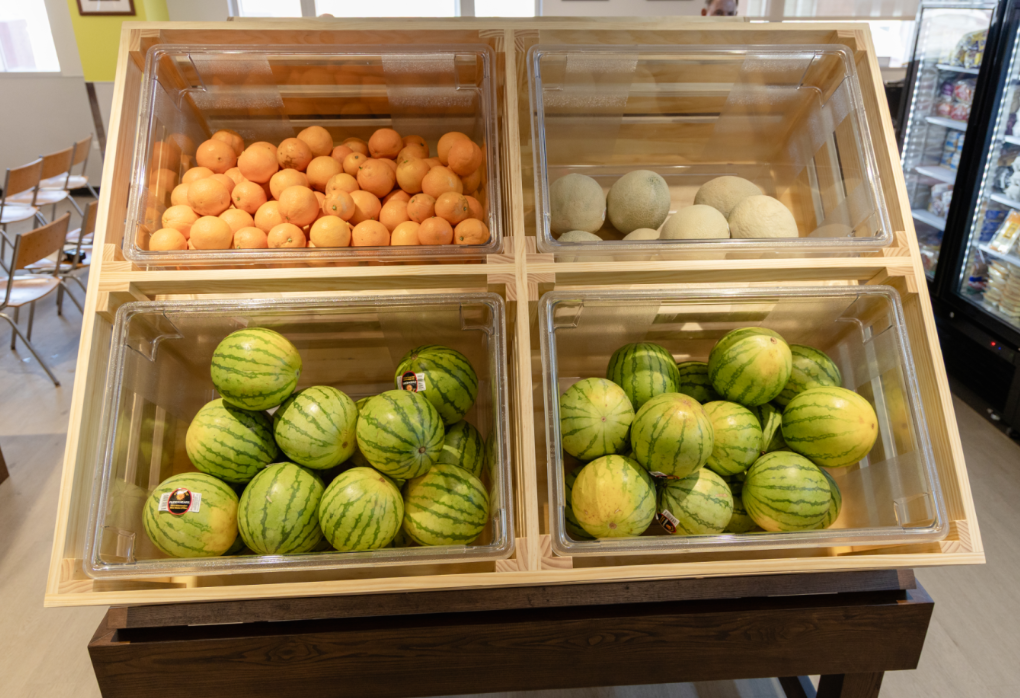Those updates include new work requirements and age limits for eligibility. Overall, the Trump administration cut $186 billion in food assistance over the next decade through the One Big Beautiful Bill Act. A third concern looms as well: The continued presence of federal immigration agents in the Chicago area has led some immigrants to avoid food pantries out of fear of being detained. At an Oct. 25 informational session at Harold Washington College, Tyler Stratton, director of community asset building for the Greater Chicago Food Depository, emphasized the organization’s ongoing efforts to prepare for increased demand.
“There’s a lot happening internally right now,” Stratton says. “We know this is going to be a long haul, and we’ll see an increase in people on the lines looking for food.”
In terms of readiness, he says, the food depository’s 800 partner pantries across Cook County are operating on a “case-by-case basis,” partly because their capacity varies greatly, from small church operations to large warehouse distributors.
The organization is working daily to ensure residents dealing with food insecurity — 1 in 5 households in Cook County, and 1 in 4 children — stay informed.


 grandchildren.
grandchildren. 


